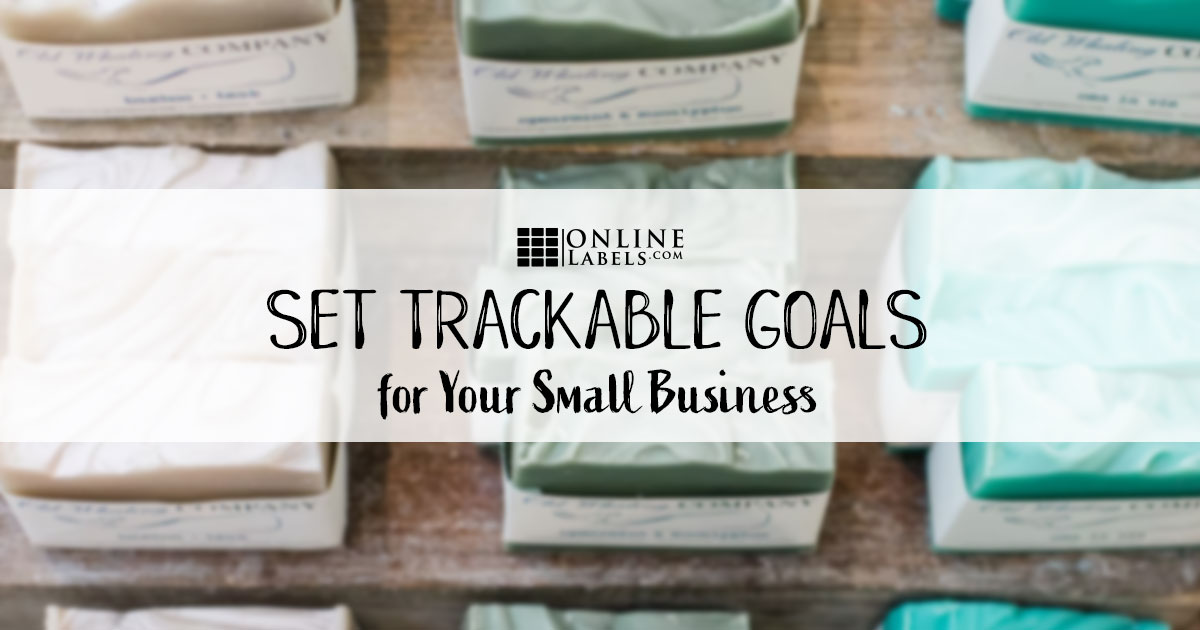How To Set and Achieve Goals for Your Small Business That Will Set You Up for Success

Setting goals is always a good idea, whether it’s general life goals for a specific area of your life, a new endeavor, or just goals for the day. They not only give you something to work toward, but if done right, goals allow you to monitor your progress and easily keep track of it.
This is especially important for small business owners. Having a direction in mind (the more specific, the better) for your business can help to avoid a growth plateau, and will make your business more successful in the long run. When you visualize where you want your business to go, it can be overwhelming once you realize everything that needs to be done. That is where goals — big and small — come in! Both need to be a part of your business blueprint to ultimately help you stay focused and on track to success.
Read on to learn how you can set yourself and your business up for success in the goal-making process.
Determine Your Goals
If you have no idea where to start when setting your goals — don’t worry, we’re here to help! Almost all business owners go through it, especially when starting out. It’s easy to come up with a list of a bunch of generic goals that any business-owner can adopt, and chances are, reaching those goals would benefit your business as well. But you can be even more intentional with it if you really want to see success.
The key is to think about what exactly it is that you want to accomplish. These can be big or small things, and can be related to anything from product/services, sales/marketing, staffing, infrastructure, and so on! When you’ve figured out some things that you want to accomplish, ask yourself, “why?” What would accomplishing that goal do for you and your business? The “why” will ultimately help you figure out if pursuing that goal is worth the time and effort.
When you’ve figured out some goals, see if you can break them down into smaller, more actionable goals that build up to the bigger goal. Visualize where you want your business to be, then think practically about the steps that will get you there. Create a step-by-step plan that starts with and consists of small goals.
Still struggling to come up with some goals? You may find it beneficial to do a SWOT analysis of your business to help you identify strengths, weaknesses, opportunities, and threats.
Get Specific
Remember the acronym SMART when setting goals.
Specific
The clearer and more specific your goals are, the more likely you are to achieve them and the easier it will be to focus your efforts. Try to answer these 5 questions with each goal:
- What do you want to accomplish?
- Why is this goal important?
- Who is involved?
- Where is it located?
- What resources are involved?
Measurable
Your goals need to be measurable so that you can track your progress accurately. This also allows you to see any headway you’re making and feel the excitement as you get closer to reaching the goal. A measurable goal would answer questions such as:
- How much
- How many
Attainable
Your goal shouldn’t be too easy to reach and should require some push, but needs to still be possible. Analyzing your business’s progress and past successes can help you figure out where the goalpost should be. Think about how you can accomplish the goal, and how realistic the goal is based on other constraints, such as finances or time.
Relevant
It may seem obvious, but make sure your goal actually matters to you. You, as the business owner, need to be convinced that going after this goal is going to be worthwhile. Also ask yourself if now is the right time, if you’re the right person to reach this goal, if some prerequisites need to be met first, and if it makes sense in the current socio-economic environment.
Time-Bound
Have. Deadlines. And if it helps, make a timeline or roadmap for each goal with checkpoints throughout, leading up to the end goal. Setting these deadlines is a great way to hold yourself accountable, and will increase motivation.
Make the deadline a specific date, rather than a vague period of time. Saying “by next fall” is very different from saying “by September 22nd.” The ambiguity of the first option leaves too much room to adjust the goalpost when the time rolls around. The second option is a set-in-stone date that you can put on your calendar and let motivate you toward success as it gets closer and closer.
Write Your Goals Down
One of the best things you can do is to keep your goals visible by writing them down! One study showed that people who write their goals down are 20% more successful in accomplishing them than those who didn’t.
This can take the form of writing them down everyday in a designated notebook, writing them on a vision board that’s displayed above your desk, or in a goal tracking app with reminders. The point is to keep the goals top-of-mind.
Meet With Your Team or Trusted Friends To Evaluate and Measure Progress
The level of accountability that comes with meeting with real people and talking about your goal progress is a game-changer. This study shows that those who set actionable tasks for their goals and initiate weekly progress reporting to their supportive peers tend to achieve 40% more than those who did not.
Meeting with supportive friends or your team regularly not only serves as a way to keep you accountable, but can help in generating new ideas, it can boost morale and be encouraging, and will also motivate you to stay committed to your goals.
Celebrate Wins
When your hard work pays off and you’ve reached a milestone or completed a goal, it absolutely deserves a celebration… you’ve earned it! This goes for smaller achievements too — the celebration could even be just eating at a favorite restaurant or getting cookies. Rewarding yourself helps build self-confidence moving forward.
If you’ve achieved a goal, take the experience and use it to review the rest of your goals. If you feel as though the goal was achieved too easily, make the next one harder. If the goal took a really long time to achieve, make the next one a bit easier. Take anything you learned throughout the process and apply it moving forward.
Whether you’re just starting your small business, or you feel like you’ve lost your sense of direction, take some time to think through what you want to achieve, set some SMART goals accordingly. Everyone has to start somewhere, and we hope these tips help you get started with chasing after success in your business!
Check out our library of small business resources for other tips on growing your business.


